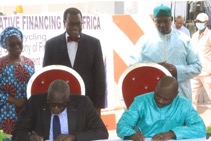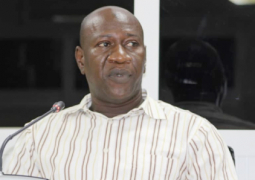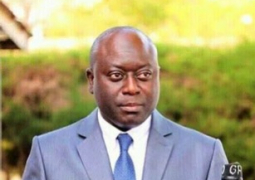
“The Russian-Ukrainian war presents an opportunity for us to solve the problem of food security. There’s no reason why Africans shouldn’t feed themselves,” President Barrow said, on the first day of Adesina’s two-day official visit to The Gambia. “We should commercialise our rice production to produce enough rice for our people.”
Local production currently meets less than 20% of the demand for rice, which is The Gambia's staple food. The African Development Bank Group is supporting the country’s efforts to produce 200,000 additional tons of paddy rice by 2028, reducing imports to zero.
In addition to support for women and youth entrepreneurship in a country where around 65% of the population is under the age of 25, Barrow also identified infrastructure, particularly road construction, as a critical area for the African Development Bank’s support.
“We are grateful for the African Development Bank’s support. The African Development Bank is our bank. We are doing a lot as a government, but we need the support of the bank to expand our work,” President Barrow said.
On the first official visit by an African Development Bank Group president for more than 20 years, Adesina described The Gambia as an important shareholder since it joined the institution in 1974.
“Since we have been supporting The Gambia, we have provided about $540 million in support,” Adesina said. He added: “Currently, our support is quite significant. It is about $282 million, which covers energy, inequality, agriculture, governance, water and sanitation, and support for youth and women.”
Adesina highlighted the importance of the Senegambia Bridge to cross-border trade. The bridge opened in 2019. He said: “I told President Barrow how pleased I am with the Senegambia Bridge, which the African Development Bank financed at the cost of about $104 million. It is a landmark piece of infrastructure. A beautiful bridge that has improved trade between Senegal and The Gambia and the rest of the West African region.”
The African Development Bank Group is helping to cushion The Gambia from some of the impacts of Russia’s war in Ukraine, including rising food insecurity and commodity prices. It has provided about $19 million to help the country produce more food, with the objective of achieving self-sufficiency in rice production.
Support for electricity in The Gambia will bring power to about 1.3 million people. The Bank Group’s Board has approved a new $21 million project that will increase rural access to electricity, as well as several other projects.
Adesina said: “I am excited by the president’s determination to support the youth of The Gambia, and I told him that the African Development Bank is ready and willing to support and finance the creation of what we call Youth Entrepreneurship Investment Banks. These will be new financial institutions that will support young Gambian entrepreneurs to thrive. And the president was very receptive to this… He wants to see a lot of work done to support women in The Gambia.”
The African Development Bank is also supporting the establishment of its Affirmative Finance Action for Women in Africa (AFAWA) initiative in The Gambia. It will provide funding for financial institutions to lend money to women entrepreneurs at affordable rates.
“I commended the President’s efforts on infrastructure,” Adesina said. He added: “As he told me, there is no development without infrastructure, and I agree with him. He said the first, second, and third priorities for him are one and the same: infrastructure.”
The African Development Bank Group is uniquely positioned to continue providing long-term concessional financing and advisory services to The Gambia to accelerate structural transformation and address the drivers of fragility. This makes it one of the country’s preferred development partners.




